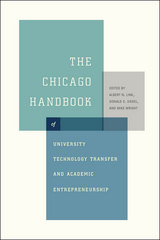
The Chicago Handbook of University Technology Transfer and Academic Entrepreneurship is the first definitive source to synthesize state-of-the-art research in this arena. Edited by three of the foremost experts in the field, the handbook presents evidence from entrepreneurs, administrators, regulators, and professors in numerous disciplines. Together they address the key managerial and policy implications through chapters on how to sustain successful research ventures, ways to stimulate academic entrepreneurship, maintain effective open innovation strategies, and improve the performance of university technology transfer offices.
A broad and ambitious work, the handbook offers comprehensive coverage for universities of all types, allowing them to confidently handle technology commercialization and further cultivate innovation.
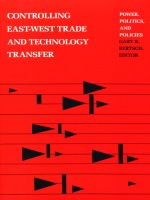
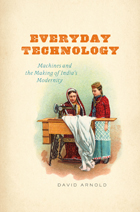
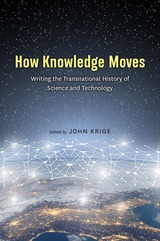
This specialized knowledge is located at multiple sites and moves across borders via a dazzling array of channels, embedded in heads and hands, in artifacts, and in texts. In the United States, it shapes policies for visas, export controls, and nuclear weapons proliferation; in Algeria, it enhances the production of oranges by colonial settlers; in Vietnam, it facilitates the exploitation of a river delta. In India it transforms modes of agricultural production. It implants American values in Latin America. By concentrating on the conditions that allow for knowledge movement, these essays explore travel and exchange in face-to-face encounters and show how border-crossings mobilize extensive bureaucratic technologies.
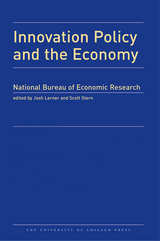
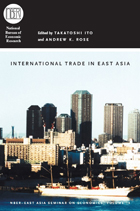
Comprised of twelve fascinating studies, International Trade in East Asia highlights many of the trading practices between countries within the region as well as outside of it. The contributors bring into focus some of the region's endemic and external barriers to international trade and discuss strategies for improving productivity and fostering trade relationships. Studies on some of the factors that drive exports, the influence of research and development, the effects of foreign investment, and the ramifications of different types of protectionism will particularly resonate with the financial and economic communities who are trying to keep pace with this dramatically altered landscape.
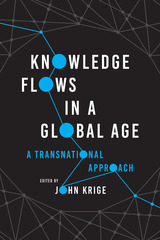
The contributors to this collection focus on what happens to knowledge and know-how at national borders. Rather than treating it as flowing like currents across them, or diffusing out from center to periphery, they stress the human intervention that shapes how knowledge is processed, mobilized, and repurposed in transnational transactions to serve diverse interests, constraints, and environments. The chapters consider both what knowledge travels and how it travels across borders of varying permeability that impede or facilitate its movement. They look closely at a variety of platforms and objects of knowledge, from tangible commodities—like hybrid wheat seeds, penicillin, Robusta coffee, naval weaponry, seed banks, satellites and high-performance computers—to the more conceptual apparatuses of plant phenotype data and statistics. Moreover, this volume decenters the Global North, tracking how knowledge moves along multiple paths across the borders of Mexico, India, Portugal, Guinea-Bissau, the Soviet Union, China, Angola, Palestine and the West Bank, as well as the United States and the United Kingdom. An important new work of transnational history, this collection recasts the way we understand and analyze knowledge circulation.

In this groundbreaking book, Mario Daniels and John Krige set out to show the enormous political relevance that export control regulations have had for American debates about national security, foreign policy, and trade policy since 1945. Indeed, they argue that from the 1940s to today the issue of how to control the transnational movement of information has been central to the thinking and actions of the guardians of the American national security state. The expansion of control over knowledge and know-how is apparent from the increasingly systematic inclusion of universities and research institutions into a system that in the 1950s and 1960s mainly targeted business activities. As this book vividly reveals, classification was not the only—and not even the most important—regulatory instrument that came into being in the postwar era.
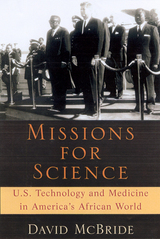
--What specific technologies and medical resources were transferred by U.S. institutions to black populations centers and why?
--How did the professed aims of U.S. technical projects, public health, and military activities differ from their actual effects and consequences?
--Did the U.S. technical transfer amount to a form of political hegemony?
--What lessons can we learn from the history of technology and medicine in these key geographic regions?
Missions for Science is the first book to explain how modern industrial and scientific advances shaped black Atlantic population centers. McBride is the first to provide a historical analysis of how shifting environmental factors and disease-control aid from the United States affected the collective development of these populations. He also discusses how independent black Atlantic republics with close historical links to the United States independently envisioned and attempted to use science and technology to build their nations.
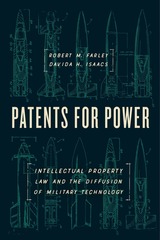
The book probes two major issues: the effect of IP law on innovation itself and the effect of IP law on the international diffusion, or sharing, of technology. Discussing a range of inventions, from the AK-47 rifle to the B-29 Superfortress bomber to the MQ-1 Predator drone, the authors show how IP systems (or their lack) have impacted domestic and international relations across a number of countries, including the United States, Russia, China, and South Korea. The study finds, among other results, that while the open nature of the IP system may encourage industrial espionage like cyberwarfare, increased state uptake of IP law is helping to establish international standards for IP protection. This clear-eyed approach to law and national security is thus essential for anyone interested in history, political science, and legal studies.
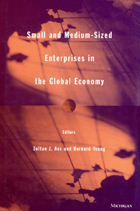
The first part of the volume provides an overview of the phenomenon of globalization, arguing that entrepreneurial discovery and technological change lead to globalization, which in turn leads to further opportunity for entrepreneurial discovery--no less for SMEs than for multinational corporations. In part two, the essays examine the role of SMEs in the global economy and why they are thriving. Part three reviews the roles of SMEs and innovators and examines their roles in direct foreign investment. Part four explores the role of technological diversity and knowledge spillovers as a way to explain the superior innovative performance of SMEs. Part five looks at the role of SMEs in technology transfer. Finally, part six examines the theoretical and policy implications of the international activities of SMEs, suggesting that policies should aim to reduce the costs in international expansion for SMEs.
This volume will provide the foundation for further study in SMEs and globalization. It will appeal to scholars and students in both international business and economics.
Zoltan J. Acs is Professor of Economics and Finance, University of Baltimore. Bernard Yin Yeung is Professor of International Business, University of Michigan.
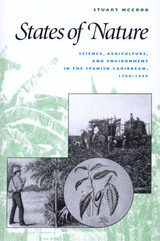
The process of nation-building in Latin America transformed the relations between the state, the economy, and nature. Between 1760 and 1940, the economies of most countries in the Spanish Caribbean came to depend heavily on the export of plant products, such as coffee, tobacco, and sugar. After the mid-nineteenth century, this model of export-led economic growth also became a central tenet of liberal projects of nation-building. As international competition grew and commodity prices fell over this period, Latin American growers strove to remain competitive by increasing agricultural production. By the turn of the twentieth century, their pursuit of export-led growth had generated severe environmental problems, including soil exhaustion, erosion, and epidemic outbreaks of crop diseases and pests.
This book traces the history of the intersections between nature, economy, and nation in the Spanish Caribbean through a history of the agricultural and botanical sciences. Growers and governments in Venezuela, Puerto Rico, Cuba, Colombia, and Costa Rica turned to scientists to help them establish practical and ideological control over nature. They hoped to use science to alleviate the pressing environmental and economic stresses, without having to give up their commitment to export-led growth. Starting from an overview of the relationship among science, nature, and development throughout the export boom of 1760 to 1930, Stuart McCook examines such topics as the relationship between scientific plant surveys and nation-building, the development of a "creole science" to address the problems of tropical agriculture, the ecological rationalization of the sugar industry, and the growth of technocratic ideologies of science and progress. He concludes with a look at how the Great Depression of the 1930s changed the paradigms of economic and political development and the role of science and nature in these paradigms.

Can university-based scientific research contribute to the economic development of a region? Can it generate wealth for the university? American universities are under increasing pressure to maximize their economic contributions. Tapping the Riches of Science offers a rigorous and far-sighted explanation of this controversial and little-understood movement.
Just how do universities contribute to innovation in industry? How have state legislatures promoted local university commitments to economic relevance? And how has the pressure to be economically productive affected the core academic missions of teaching and research? Drawing from a range of social science analyses, campus interviews, and examples of university-industry partnerships, Roger Geiger and Creso Sá reveal the ways that economic development has been incorporated into university commitments.
Noting enduring cultural differences between the academic and business worlds, Geiger and Sá deflate both suspicious and overconfident views. They show how elusive success can be for embryonic discoveries with as-yet-unclear applications. Warning against promising—and expecting—too much, Tapping the Riches of Science nonetheless makes a strong case for the long-term promise of practical uses for academic research.
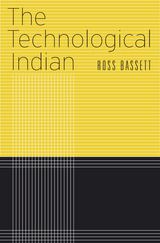
In the late 1800s, Indians seemed to be a people left behind by the Industrial Revolution, dismissed as “not a mechanical race.” Today Indians are among the world’s leaders in engineering and technology. In this international history spanning nearly 150 years, Ross Bassett—drawing on a unique database of every Indian to graduate from the Massachusetts Institute of Technology between its founding and 2000—charts their ascent to the pinnacle of high-tech professions.
As a group of Indians sought a way forward for their country, they saw a future in technology. Bassett examines the tensions and surprising congruences between this technological vision and Mahatma Gandhi’s nonindustrial modernity. India’s first prime minister, Jawaharlal Nehru, sought to use MIT-trained engineers to build an India where the government controlled technology for the benefit of the people. In the private sector, Indian business families sent their sons to MIT, while MIT graduates established India’s information technology industry.
By the 1960s, students from the Indian Institutes of Technology (modeled on MIT) were drawn to the United States for graduate training, and many of them stayed, as prominent industrialists, academics, and entrepreneurs. The MIT-educated Indian engineer became an integral part of a global system of technology-based capitalism and focused less on India and its problems—a technological Indian created at the expense of a technological India.
READERS
Browse our collection.
PUBLISHERS
See BiblioVault's publisher services.
STUDENT SERVICES
Files for college accessibility offices.
UChicago Accessibility Resources
home | accessibility | search | about | contact us
BiblioVault ® 2001 - 2024
The University of Chicago Press









